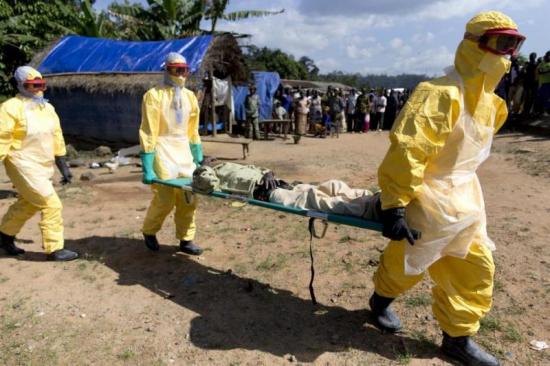AFP Feb. 11, 2015
Geneva -- The number of new Ebola cases in west Africa rose for the second week running after a previous fall, including a "sharp increase" in Guinea, the World Health Organization said Wednesday.
 Health workers wearing protective suits carry a patient suspected of having Ebola on their way to an Ebola treatment centre in Macenta, Guinea, on November 21, 2014 (AFP Photo/Kenzo Tribouillard)
Health workers wearing protective suits carry a patient suspected of having Ebola on their way to an Ebola treatment centre in Macenta, Guinea, on November 21, 2014 (AFP Photo/Kenzo Tribouillard)
Nearly 9,000 people have died from the epidemic, the WHO said while admitting that it was impossible to give a precise number as the outcomes of some cases remained unknown.
All but 15 of the fatalities have happened in the worst-affected west African countries of Sierra Leone, Liberia and Guinea.
In the week up to February 8 a total of 144 new cases were registered, compared to 124 the previous week.
"Guinea reported a sharp increase in incidence, with 65 new confirmed cases compared with 39 the week before," the WHO said in its report.
Recent Comments